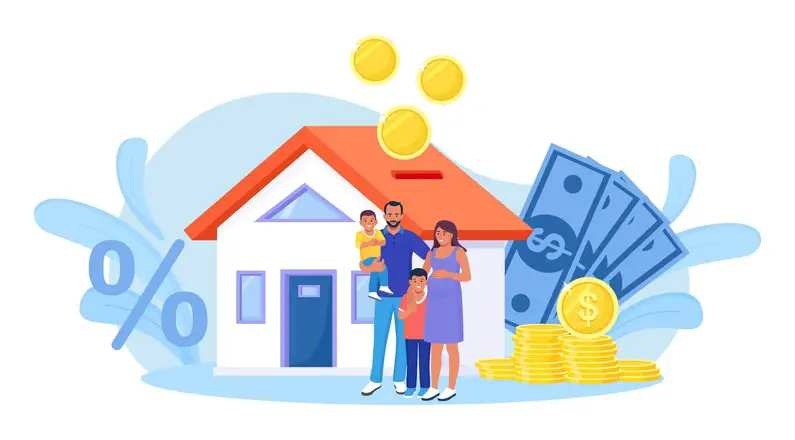Home equity loans are a popular way for homeowners to access the equity they have built up in their homes. The equity in a home is the difference between the home’s value and the amount owed on the mortgage. Home equity loans allow homeowners to borrow against this equity using their home as collateral. In this article we will discuse about what home equity loans are, how they work and some of the pros and cons of taking out a home equity loan.
What is a Home Equity Loan?
Homeowners can borrow money using the equity in their house as collateral for a home equity loan. The loan is secured by the home and the borrower typically receives a lump sum of money upfront. Home equity loans are often used for large expenses such as home renovations, debt consolidation, or major purchases.
How do Home Equity Loans Work?
Home equity loans work by allowing homeowners to borrow money against the equity in their home. The amount of equity that can be borrowed against will depend on a few factors, such as the appraised value of the home, the amount owed on the mortgage, and the lender’s requirements.
When a houseeowner applies for a home equity loan they need to provide information about their income, credit score and other financial information. The lender will then evaluate this information and determine the amount of equity that can be borrowed against.
Once the loan is approved the houseowner will receive a lump sum of money upfront. They will then be required to make monthly payments on the loan, typically with a fixed interest rate and term.
Here is a table outlining some typical interest rates and repayment terms for home equity loans:

*It is important to note that interest rates and repayment terms can vary depending on the lender, the borrower’s credit score, and other factors. It is recommended that homeowners shop around and compare offers from multiple lenders before choosing a home equity loan. Additionally, homeowners should carefully review the terms and conditions of the loan, including any fees or penalties that may apply.
Pros of Home Equity Loans:
- Lower Interest Rates: Home equity loans generally have lower interest rates than credit cards or personal loans. This can make them a more affordable option for homeowners who need to borrow money.
- Fixed Interest Rates: Home equity loans often comes with fixed interest rates which means that the borrower knows exactly how much they will need to pay each month. This can make budgeting and financial planning easier.
- Potential Tax Benefits: In some cases interest paid on a home equity loan may be tax deductible. Homeowners should consult with a tax professional to determine whether they qualify for this deduction or not.
- Large Loan Amounts: Home equity loans can provide borrowers with access to large sums of money, making them a good option for major expenses such as home renovations or debt consolidation.
Cons of Home Equity Loans:
- Risk of Foreclosure: Because home equity loans are secured by house, there is a risk of foreclosure if the borrower is unable to make their payments. Homeowners should carefully consider their ability to repay the loan before taking out a home equity loan.
- Fees and Closing Costs: Home equity loans may come with fees and closing costs, which can add to the overall cost of the loan. Homeowners should carefully review these costs before applying for a home equity loan.
- Longer Repayment Periods: Home equity loans are having longer repayment periods than other types of loans which means that the borrower can pay interest for a longer period of time.
- Limited Flexibility: Home equity loans provide borrowers with a lump sum of money upfront, which may limit their ability to make changes to the loan or access additional funds.
Conclusion:
Home equity loans is a good option for homeowners who need to borrow money for large expenses such as home renovations or debt consolidation. They offer lower interest rates, fixed interest rates, and potential tax benefits. However, they also come with risks such as the risk of foreclosure and fees and closing costs. Homeowners should have carefully consider their options and ability to repay the loan before taking out a home equity loan.



